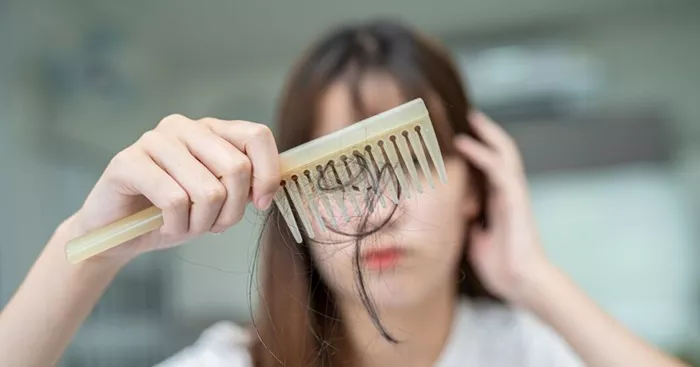Postpartum hair loss is a common experience for many new mothers. It can be alarming to see clumps of hair falling out, but this condition is usually temporary. To understand how long postpartum hair loss lasts, it’s important to know why it happens in the first place.
The Hair Growth Cycle
Hair grows in cycles. There are three phases: the growth phase (anagen), the transition phase (catagen), and the resting phase (telogen). During pregnancy, hormonal changes prolong the growth phase. This is why many women notice thicker, fuller hair while they are pregnant.
Hormonal Changes After Birth
After childbirth, hormone levels drop rapidly. This sudden change can shock hair follicles into the resting phase. As a result, more hair than usual falls out. This condition is called telogen effluvium.
When Does Postpartum Hair Loss Start?
Postpartum hair loss typically starts around three months after giving birth. Some women may notice it earlier, while others may see changes later. The timing varies from person to person.
Duration of Postpartum Hair Loss
Postpartum hair loss usually lasts for several months. For most women, it peaks around the four-month mark and then gradually decreases. By six to twelve months postpartum, hair loss should return to its pre-pregnancy rate.
See also: Will Hair Grow Back After Stress
Factors Influencing Duration
Several factors can influence the duration and severity of postpartum hair loss:
Individual Hair Cycle:
Each person’s hair growth cycle is different. Some women may experience a shorter or longer period of hair shedding.
Nutrition and Diet:
A balanced diet rich in vitamins and minerals supports hair health. Nutrient deficiencies can prolong hair loss.
Stress Levels:
High stress can exacerbate hair loss. Managing stress through relaxation techniques can help.
Sleep Patterns:
Adequate sleep is essential for overall health, including hair health. Sleep deprivation can affect hair growth.
Hair Care Practices:
Gentle hair care practices can minimize hair breakage and loss. Avoiding harsh treatments and using mild shampoos can help.
When to Seek Medical Advice
While postpartum hair loss is usually temporary, it’s important to know when to seek medical advice. If hair loss is severe or lasts beyond a year, consult a healthcare professional. Other underlying conditions, such as thyroid issues or iron deficiency, can contribute to hair loss and may require treatment.
Managing Postpartum Hair Loss
Managing postpartum hair loss involves both practical and emotional strategies. Here are some tips to help:
Gentle Hair Care:
Use a wide-toothed comb to detangle hair. Avoid tight hairstyles that pull on the hair.
Balanced Diet:
Ensure your diet is rich in vitamins and minerals, particularly iron, zinc, and vitamins A, C, D, and E.
Stay Hydrated:
Drink plenty of water to keep your body and hair hydrated.
Stress Management:
Practice stress-reducing techniques such as meditation, yoga, or deep-breathing exercises.
Hair Supplements:
Consult your healthcare provider about taking hair supplements. Biotin and other hair-boosting vitamins can be beneficial.
Patience:
Understand that postpartum hair loss is temporary. Your hair growth will return to normal over time.
Emotional Impact of Hair Loss
Hair loss can have an emotional impact. It’s natural to feel upset or worried about changes in your appearance. Here are some ways to cope:
Talk About It:
Share your feelings with friends, family, or support groups. Knowing you’re not alone can be comforting.
Focus on Self-Care:
Take time for self-care activities that make you feel good, whether it’s a relaxing bath, a walk in nature, or a hobby you enjoy.
Embrace Changes:
Consider changing your hairstyle to something that works well with thinner hair. A new look can boost your confidence.
Professional Help:
If you’re struggling with the emotional impact of hair loss, consider talking to a counselor or therapist.
Long-Term Hair Health
Once postpartum hair loss stabilizes, focus on maintaining long-term hair health. Here are some tips:
Regular Trims:
Keep your hair healthy with regular trims to remove split ends.
Avoid Heat:
Minimize the use of heat styling tools. If you must use them, apply a heat protectant spray.
Protective Styles:
Use protective hairstyles that reduce hair breakage.
Healthy Scalp:
Keep your scalp healthy by using gentle shampoos and conditioners. Avoid products with harsh chemicals.
Conclusion
Postpartum hair loss is a common and temporary condition. It typically starts a few months after childbirth and lasts for several months. By six to twelve months postpartum, hair loss should return to normal. Factors such as diet, stress, and hair care practices can influence the duration and severity of hair loss. Managing postpartum hair loss involves gentle hair care, a balanced diet, stress management, and patience. While hair loss can have an emotional impact, focusing on self-care and seeking support can help. For long-term hair health, maintain regular trims, avoid excessive heat, and use protective styles. If hair loss is severe or lasts beyond a year, seek medical advice to rule out underlying conditions.
You May Be Interested In

